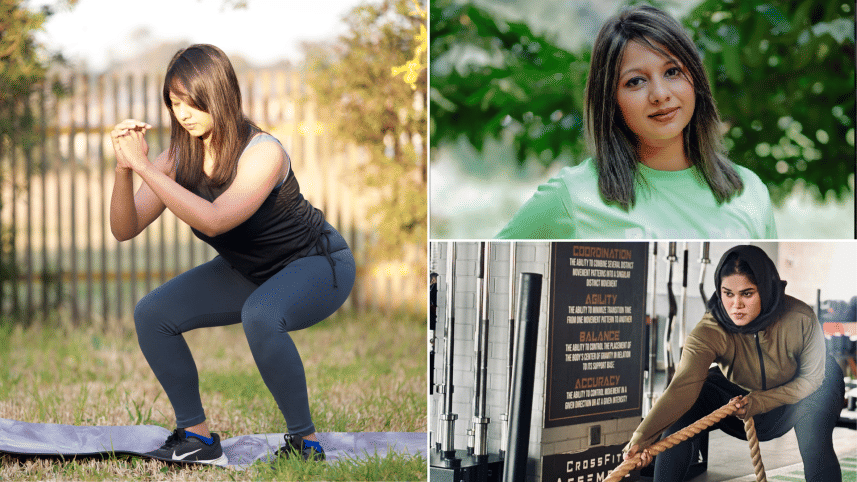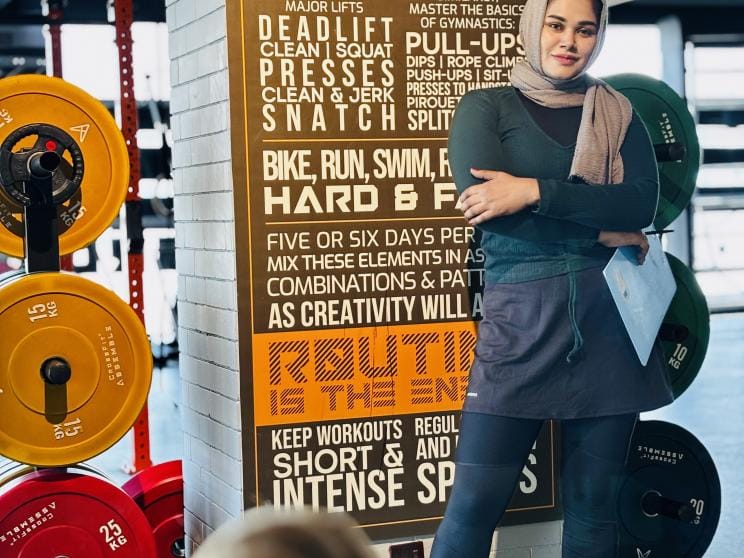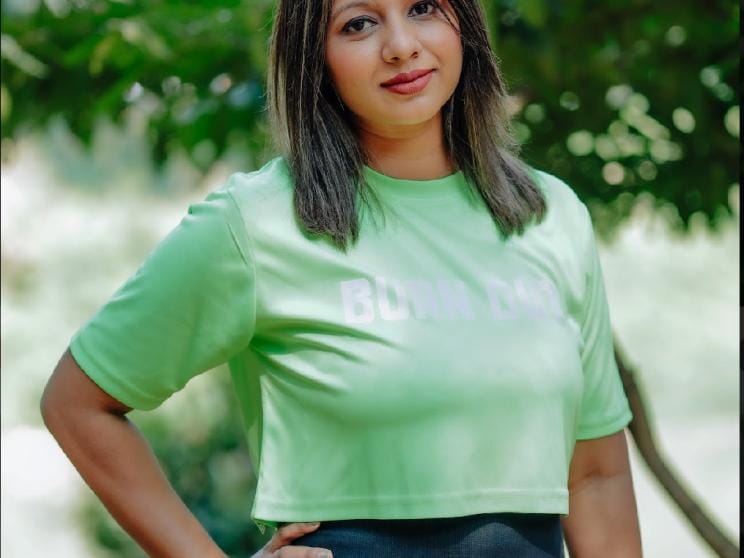How Dhaka’s female fitness instructors are redefining wellness

Female fitness instructors in the capital are rewriting the rules of wellness. Once sidelined in a male-dominated space, these women are now taking centre stage, blending expertise with personal passion, and inspiring others to redefine health, not as a luxury but as a necessity.
Two voices stand out in this movement: Nuran Durdana, a Certified Personal Trainer in Human Movement Science (Brookbush Institute), and Sabrina Rahman, founder of Burnout Fitness and a licensed Zumba instructor trained in Melbourne, Australia.
Their journeys reveal the scope, challenges, and potential of female-led fitness in Dhaka.

From personal health battles to professional empowerment
For many women entering the industry, the path begins with personal transformation.
"I had hypothyroidism," recalls Durdana. "I used to hate the gym. I hated the treadmill, I hated weights. But now, I'm a heavyweight lifter. I've built a career from what I once resisted."
Her shift from reluctance to passion became a mission, encouraging women, especially those over 30, to embrace strength training.
"If I look at body composition in Bangladesh, women have almost no muscle mass. Even those who look slim often have more fat and no muscle. We need to build muscle to stay healthy and strong," she adds.
Rahman's journey began on another continent. Living in Australia, she was balancing an IT career and raising two young children when she realised fitness had to be a priority.
"After my kids were born, I was constantly tired. I wanted the energy to play with them. That's when I thought, why not turn my passion for fitness into my profession?" She pursued a rigorous one-year Certificate III in Fitness from Melbourne's Fit College, completing part of it online during the pandemic.
Breaking into a male-dominated industry
Both women acknowledge that Dhaka's fitness scene remains heavily male-dominated.
"There's still hesitation for women to train under male instructors," says Durdana. "If we have more well-educated, well-mannered female trainers, it will encourage more women to join gyms. Right now, you'll see 10 or 20 men for every one woman in many gyms."
Rahman agrees. "When I started, there was a lot of criticism: comments about body type, weightlifting, or even the idea of working out from home. Many felt fitness meant only going to a gym. However, during COVID-19, I showed that home workouts could work for mums, housewives, and working women who can only spare 30 minutes a day."

Shifting mindsets and building acceptance
For these instructors, one of the biggest barriers is not just infrastructure, it's perception.
"The first step is education," says Durdana. "We need social acceptance. Fitness training must be seen as a respected profession. If people start saying, 'Oh, you're a trainer — that's amazing!' more women will join."
Rahman emphasises the need to challenge ingrained beliefs. "In our culture, mothers are often told to focus only on their children. I teach that to care for your children, you must first take care of yourself. If the mother is well, the family thrives."
Beyond the workout: Holistic wellness
Both trainers stress that fitness is not just about aesthetics.
"I want to work on real goals, real lifestyles," says Durdana. "If someone tells me their only goal is to look like a certain celebrity, I tell them to find another trainer. I focus on functional training – so you can climb stairs, carry groceries, and live independently as you age. Fitness is like eating or showering — it's part of daily life."
For Sabrina, wellness also means accessibility. Her Burnout Fitness programs were designed to help women work out from home without equipment. "Not everyone can go to a gym, but everyone deserves the chance to be fit. The mindset shift is the most important thing."
The business of female fitness in Dhaka
Fitness instruction is also a growing career path for women in the city. With the rise of boutique studios, online coaching, and specialised classes, instructors can build sustainable income streams.
"You can work part-time, freelance, or even start your own studio," says Rahman. "But training opportunities in Bangladesh are limited. Many local trainers learn from one another instead of relying on formal institutions. We need proper certification programs here."
Durdana shares a similar vision for the future. "I dream of having my own space with training, nutrition counselling, and mental health support under one roof. When I train clients, psychology is as important as physical training. People don't tell you everything on day one — you have to build trust."
Creating safe and inclusive spaces
Safety and comfort remain central issues. "Women feel more comfortable in female-led environments," says Durdana. "Studios for women, or at least more female trainers, will help break down barriers."
These spaces are not just about avoiding discomfort, they are about empowerment. "When women see other women lifting weights, running classes, or leading Zumba, it normalises strength and fitness," adds Sabrina.
A growing, health-conscious Dhaka
Both instructors see a promising future for women's fitness in the capital.
"We are slowly becoming more health-conscious," says Rahman. "When I go to the gym now, I see people genuinely working out for their health, not just to pass the time. But we still need more trainers, especially women, in everything from Zumba to Pilates."
Durdana agrees, stressing that the industry's growth depends on shifting how people think about exercise.
"In Bangladesh, fitness still means going to the gym without a clear plan. I want to change that so people see it as part of life, linked to their careers, families, and happiness," she says.
Stronger together
Female fitness instructors in Dhaka are more than just trainers; they are educators, entrepreneurs, and catalysts for change. They are proving that fitness is not just about losing weight or looking good, but about building resilience, independence, and community.
In a city where women's public roles are often scrutinised, these instructors are claiming space, not just in gyms, but in the cultural imagination of what women can do and be.
As Durdana puts it, "We need to build muscle mass, and not just in our bodies, but in our mindset as a society."
And Sabrina's words remind us of the deeper truth: "If you have a passion, do it. Criticism will always be there, but health is priceless, and helping others find it is the best reward."



 For all latest news, follow The Daily Star's Google News channel.
For all latest news, follow The Daily Star's Google News channel.
Comments